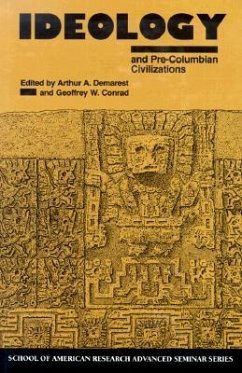The role played by ideology in the evolution of civilizations is being energetically debated by archaeologists, but until now the theoretical debates have had little impact on the actual interpretation of field data from Mesoamerica or South America. Studies of pre-Columbian ideology have generally used historical, ethnohistorical, and iconographic data to look synchronically at specific ancient religions. Little progress has been made in applying archaeological information to address the broader problem of the role of ideology in prehistoric episodes of culture change. Has ideology any relevance in the reconstruction of prehistory? An advanced seminar at the School of American Research brought together the directors of several major archaeological field projects to address this question in the pre-Columbian context. The resulting papers, collected in this volume, employ data from central Mexico, the Maya area, coastal Peru, and highland Peru and Bolivia to interpret evidence of prehistoric ideology. The authors of these papers take a variety of theoretical approaches, seeking to understand how ideology interacts with the ecological, economic, and political factors involved in culture change. They are concerned not with ideologies or cosmologies per se but with the effect of ideology on power relations, since the expansions and collapses of civilizations are, in the end, the successes and failures of political systems.








